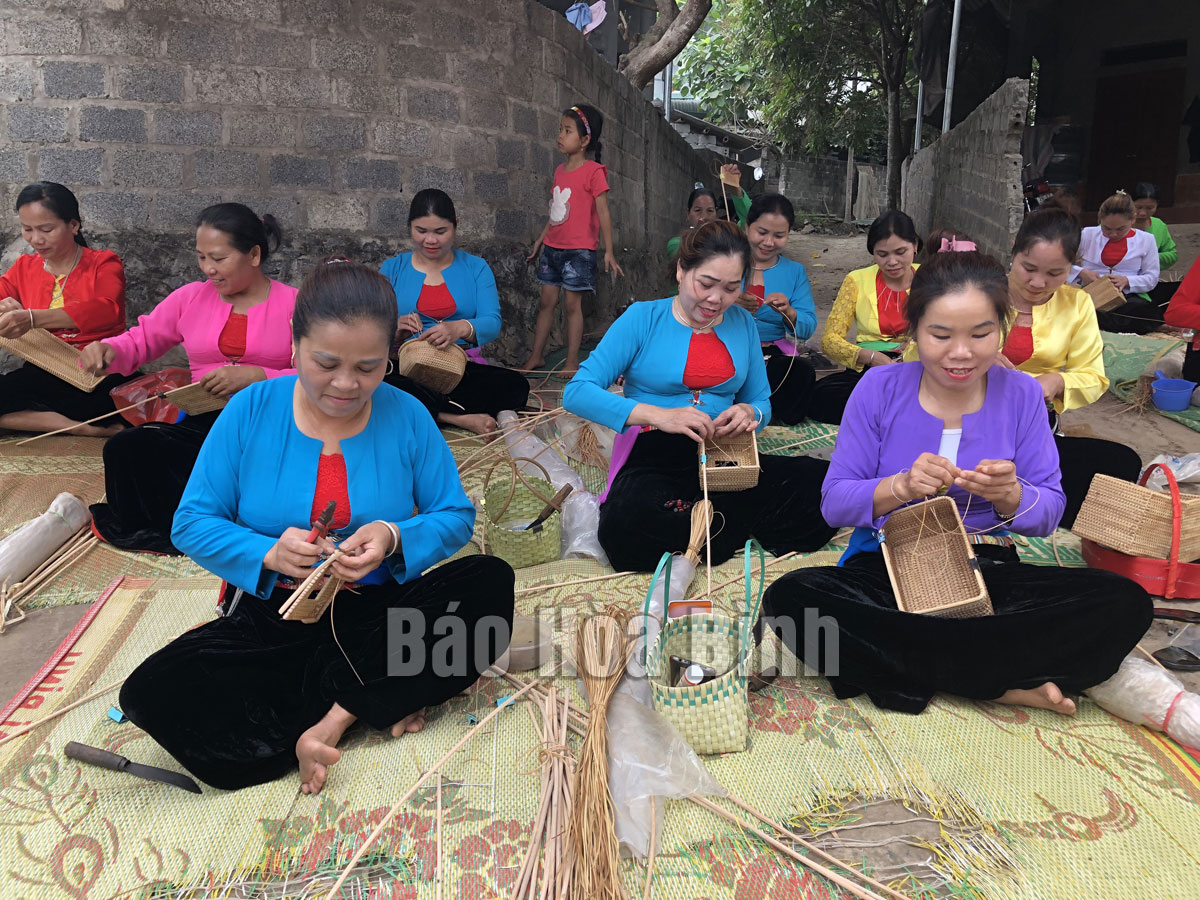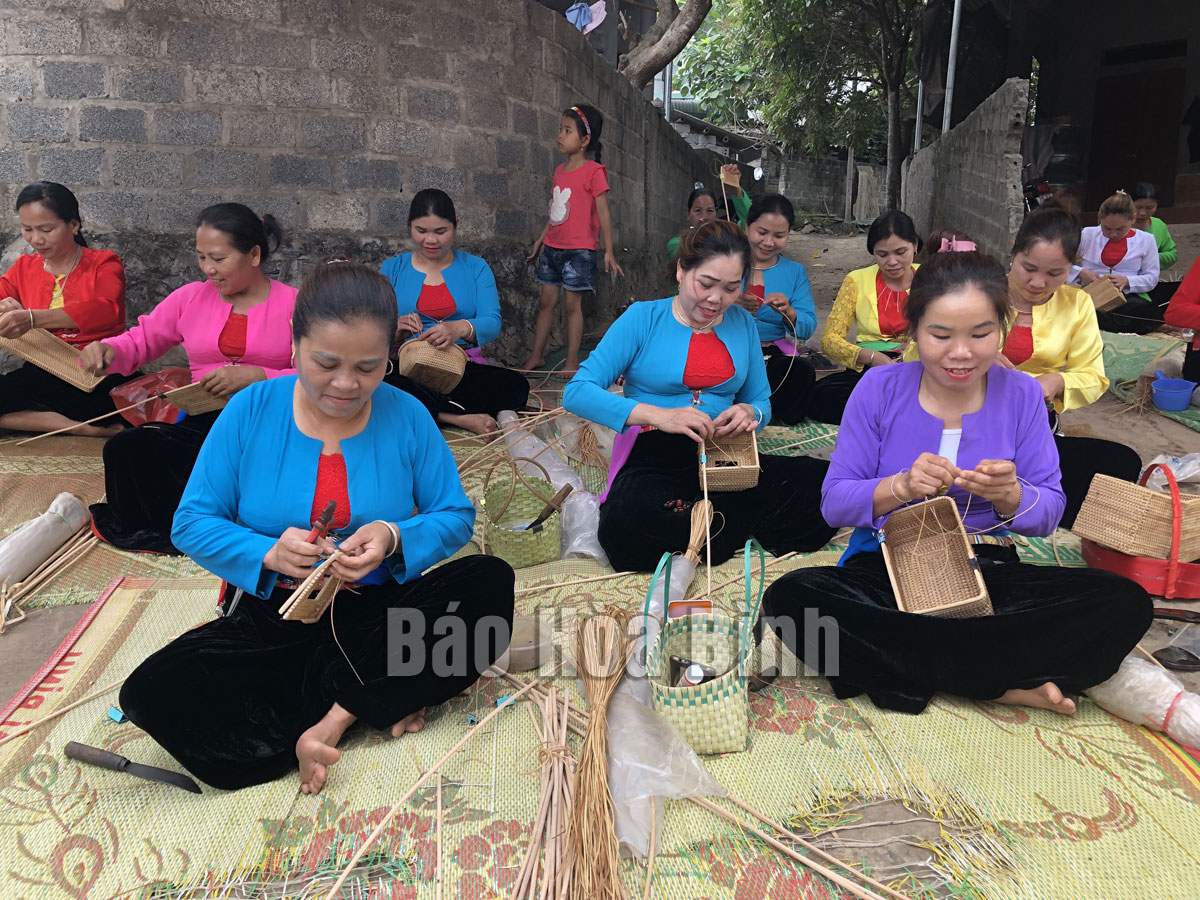
(HBO) – Over the years, the Hoa Binh Cooperative Alliance have rolled out various measures to support local cooperatives to develop farm produce production and selling chains, thus promoting the economic transition process, creating jobs and improving income for local farmers.
Yen Nghiep bamboo and rattan cooperative
in Yen Nghiep commune of Lac Son district has created jobs with stable income
for many local workers.
A report from the provincial Cooperative Alliance showed that Hoa Binh
currently has 500 cooperatives, along with four people’s credit funds and 209
cooperative groups. In the first quarter of 2023, 13 new cooperatives were
established, completing 32.5% of the province’s yearly target. Local
cooperatives have attracted 11,496 members with 28,758 labourers.
Vo Hoai Giap, head of the Support Division of the provincial Cooperative
Alliance, said the alliance has developed 13 projects to develop agricultural
production towards value chains at total cost of 110.45 billion VND (4.7
million USD), and at the same time held communication activities and training
courses to enhance local cooperatives’ awareness and knowledge of production
linkage.
Giap said that the province has eight cooperatives and six cooperative groups
in aquatic farming and processing with nearly 100 members, mostly in the Hoa
Binh reservoir.
Defining fisheries as a key sector of the province, the Hoa Binh Cooperative
Alliance has focused on supporting local cooperatives in aquatic farming and
processing in the Hoa Binh reservoir, such as providing capital and technical
assistance, helping double and triple economic values for local farmers
engaging in production chains.
Alongside, the alliance has also supported the development of value chains in
chicken and pig raising and the production of some local specialties.
According to a representative of the Hoa Binh Cooperative Alliance, production
in the form of value chains facilitates the development of large-scale material
region and the application of advanced technologies.
In order to enhance the efficiency of supporting activities, the alliance has
set up working groups to connect supply and demand sources for local
cooperatives.
Since the beginning of this year, the alliance has helped local cooperatives to
sell products in Quang Ninh, while coordinating with Moongtea company in Hanoi
to organise a series of activities to introduce typical products of the
province.
The alliance has guided local cooperatives in how to access capital from
various support funds, while fostering linkage among them and between the
cooperatives and other economic organisations, and encouraging the cooperatives
to promote agricultural production chains and developing OCOP (One Commune-One
Product) products in association with the building of advanced and model
new-style rural areas, said the representative./.
According to data from the Hoa Binh Provincial Party Committee, the industrial production index for the first six months of 2025 is estimated to have increased by 20% compared to the same period last year. This marks the highest year-on-year growth rate for this period since 2020.
In the first six months of 2025, Hoa Binh province’s export turnover was estimated at 1.145 billion USD, marking an 18.11% increase compared to the same period in 2024. Import turnover was estimated at $ 804 million, a 17.15% increase, which helped the province maintain a positive trade balance.
The lives of the ethnic minority farmers in Tan Lac district have gradually improved thanks to the new directions in agricultural production. This is a testament to the collective strength fostered through the professional associations and groups implemented by various levels of the district’s Farmers’ Union.
With the motto the "product quality comes first,” after nearly one year of establishment and operation, Muong village’s Clean Food Agricultural and Commercial Cooperative, located in Cau Hamlet, Hung Son Commune (Kim Boi district), has launched reputable, high-quality agricultural products to the market that are well-received by consumers. The products such as Muong village’s pork sausage, salt-cured chicken, and salt-cured pork hocks have gradually carved out a place in the market and they are on the path to obtaining the OCOP certification.
In the past, the phrase "bumper harvest, rock-bottom prices" was a familiar refrain for Vietnamese farmers engaged in fragmented, small-scale agriculture. But today, a new spirit is emerging across rural areas of Hoa Binh province - one of collaboration, organisation, and collective economic models that provide a stable foundation for production.
Maintaining growing area codes and packing facility codes in accordance with regulations is a mandatory requirement for agricultural products to be eligible for export. Recently, the Department of Agriculture and Environment of Hoa Binh province has intensified technical supervision of designated farming areas and packing facilities to safeguard the "green passport" that enables its products to access international markets.



